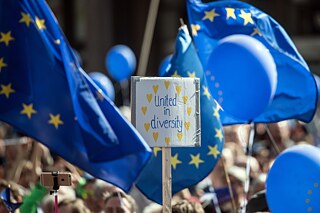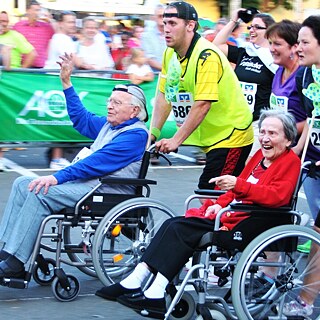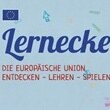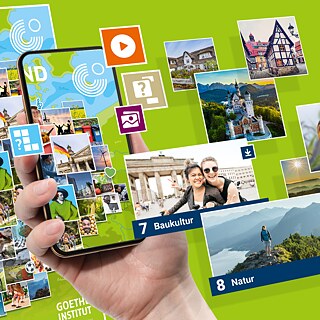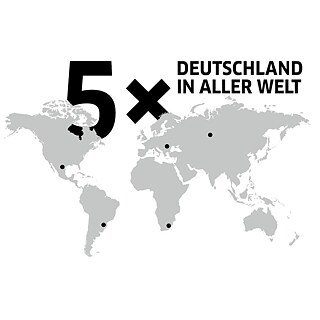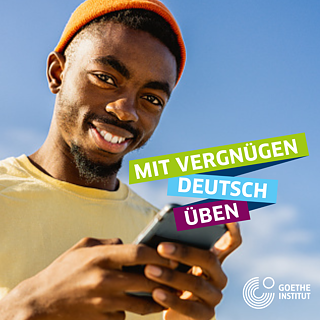
Show description in:
Artificial Intelligence - Exciting ideas for your GFL classroom
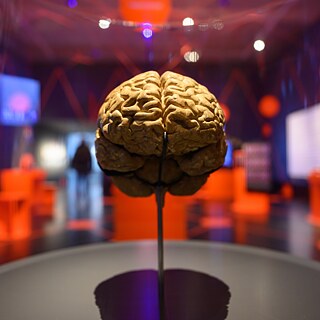

Description
AI is an exciting and important topic. AI can solve problems in a flash. Sometimes it is also risky. It is being used in many areas and affects all of us, whether we like it or not. It's moving very fast, and even experts often don't know what the future holds for AI.
The worksheets are designed to build and practice vocabulary in these areas:
AI, history and development of AI, AI in our everyday lives, correct use of AI, future of AI, strong and weak AI, AI in education, AI and learning, opportunities and risks of AI, advantages and disadvantages of AI, AI in the world of work, generative AI, using different AI programs, creating images with AI, creating prompts with AI, AI and art, AI in the classroom, AI and leisure, AI for test preparation, AI for career guidance, AI in research, AI law, environmental and climate protection in AI, AI in medicine, AI application INKA, OpenAI, ChatGPT, BCI, algorithms, robots/robotics, ethics, values, rules and laws, and the "I'm a scientist" competition.
There are also exercises in the worksheets that focus on these grammatical structures and different linguistic acts:
Find more information on the topic here: https://www.goethe.de/ki25
The worksheets are designed to build and practice vocabulary in these areas:
AI, history and development of AI, AI in our everyday lives, correct use of AI, future of AI, strong and weak AI, AI in education, AI and learning, opportunities and risks of AI, advantages and disadvantages of AI, AI in the world of work, generative AI, using different AI programs, creating images with AI, creating prompts with AI, AI and art, AI in the classroom, AI and leisure, AI for test preparation, AI for career guidance, AI in research, AI law, environmental and climate protection in AI, AI in medicine, AI application INKA, OpenAI, ChatGPT, BCI, algorithms, robots/robotics, ethics, values, rules and laws, and the "I'm a scientist" competition.
There are also exercises in the worksheets that focus on these grammatical structures and different linguistic acts:
- Adjectives (AB 1, AB 6)
- Years (AB 1)
- Present passive (AB 1)
- Verb conjugation (AB 2)
- Spelling (AB 3)
- Percentages (AB 3)
- Creating class statistics (AB 3)
- Future tense I (AB 5)
- Relative pronouns (AB 6)
- to ... to (AB 8)
- Subjunctive II (AB 8)
- Direct and indirect questions (AB 8)
- Composites (AB 12)
- Expressing advantages and disadvantages
- Fill in the blanks
- Reading comprehension
- Expressing and justifying opinions
- Describing and interpreting cartoons
- Describing pictures
- Writing a comment or (critical) e-mail
- Create your own prompts
- Work with AI-generated text
- Create presentations
- Discuss and debate in groups, with partners, and in plenary sessions
- making assumptions
Find more information on the topic here: https://www.goethe.de/ki25
Downloads
- 01-was-ist-ki-ab.pdf (PDF, 1.09 MB)
- 01-was-ist-ki-lhr.pdf (PDF, 0.45 MB)
- 02-generative-ki-ab.pdf (PDF, 1.26 MB)
- 02-generative-ki-lhr.pdf (PDF, 0.09 MB)
- 03-openai-ab.pdf (PDF, 1.62 MB)
- 03-openai-lhr.pdf (PDF, 0.1 MB)
- 04-bildung-ab.pdf (PDF, 1.3 MB)
- 04-bildung-lhr.pdf (PDF, 0.09 MB)
- 05-arbeitswelten-ab.pdf (PDF, 0.81 MB)
- 05-arbeitswelten-lhr.pdf (PDF, 0.08 MB)
- 06-kreativitaet-ab.pdf (PDF, 1.87 MB)
- 06-kreativitat-lhr.pdf (PDF, 0.08 MB)
- 07-spielen-ab.pdf (PDF, 1.41 MB)
- 07-spielen-lhr.pdf (PDF, 0.08 MB)
- 08-forschung-ab.pdf (PDF, 1.63 MB)
- 08-forschung-lhr.pdf (PDF, 0.07 MB)
- 09-utopien-und-dystopien-ab.pdf (PDF, 1.59 MB)
- 09-utopien-und-dystopien-lhr.pdf (PDF, 0.06 MB)
- 10-ethik-ab.pdf (PDF, 1.37 MB)
- 10-ethik-lhr.pdf (PDF, 0.07 MB)
- 11-risiken-ab.pdf (PDF, 1.97 MB)
- 11-risiken-lhr.pdf (PDF, 0.07 MB)
- 12-chancen-ab.pdf (PDF, 1.47 MB)
- 12-chancen-lhr.pdf (PDF, 0.07 MB)
